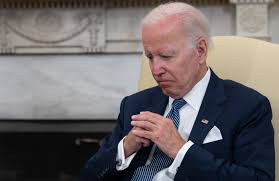Greece votes in parliamentary elections: Who has the best chances?
Today, May 21, Greek voters head to the polls to choose their representatives in the country’s 300-member parliament. Almost 10 million Greeks will vote. About 440,000 of them will go to the polls for the first time. Sociologists and political analysts expect the battle to be fought between three main parties.
The most serious contenders for power are the current Prime Minister Kyriakos Mitsotakis from the conservative “New Democracy”, the former Prime Minister Alexis Tsipras from the leftist SYRIZA, and the former MEP and PASOK leader Nikos Androulakis.
According to local legislation, all Greek citizens who turn 17 years of age in the year of the elections, are registered in the electoral roll of a municipality or town hall in Greece and are not deprived of their right to vote have right to vote.
This year, Greek voters abroad will also be able to exercise their right to vote if they meet the relevant requirements.
The diaspora voted on May 20 – one day before the elections in the country, from 7:00 a.m. to 7:00 p.m. local time, writes BGNES. The total number of Greeks who expressed a desire to vote abroad is 22,855. The most numerous among them are those in Great Britain – 4,876, followed by Greeks in Germany – 3,326, the Netherlands – 1,935, and the USA – 1,680 people. In fifth place is Belgium with 1,630 voters. Greek citizens will have the opportunity to vote in polling stations outside the country in embassies, consulates, and cultural centers of the Greek diaspora. In order to create a voting section, the number of voters must exceed 40.
If a minimum of 40 voters are not gathered in the polling station, they will be moved to the nearest voting station. For example, Greeks from Albania and Serbia will have to vote in Sofia, as this is the nearest polling station. Forecasts are that a government is unlikely to be formed after the May 21 election and the country is expected to hold another vote in July. The reason for this is the specificity of the electoral system in the country, which will make it difficult for any of the parties to gather a majority to form an independent government. At the same time, there is no possibility of creating coalitions.
It will be the first election since 1990 not to use the bonus seat system. The enhanced proportional electoral system – the only one of its kind – was the norm for Greece for many years. Under it, most seats were elected by proportional representation, but the party with the most votes received a fixed bonus of 50 seats.
Thus, the system favored the parliamentary majority of one party from the very first round of elections. In 2016, SYRIZA, which was a major partner in the government at the time, proposed a bill to abolish the enhanced proportional system. Instead, they introduced a party-list proportional representation system that was intended to make coalition governments more widespread. Under this new system, the parliamentary majority of a party could now only be achieved with a minimum share of 45% of the vote.
However, the bill’s fate changed in 2020 when the New Democracy government abolished the party-list proportional representation system. Instead, they reintroduced a system similar to the supermajority system.
The main difference is that the size of the majority bonus now depends on the largest party’s share of the national vote. This bonus ranges from a minimum of 20 seats with a share of 25% of the vote to a maximum of 50 seats with a share of 40% and more. It is important to note that if the first party’s vote share falls below 25%, it will not be awarded a majority bonus.
This change also means that an absolute majority can be achieved by the leading party if it receives 38% of the vote. This system will also be applied during the second round of elections. The entire election campaign took place against the backdrop of the tragic Tempe train crash.
Political analysts are of the opinion that it lacked loud promises, and “empty talk” and was generally not full of hope. Special attention is given to young people, who are greatly affected by the high unemployment in the country.
Although Greece has seen growth of 5.9% in 2022, Tsipras has argued that the benefits are not being spread among the population, as many workers are still receiving wages that are out of step with skyrocketing costs. He is pushing for a wage increase, which Mitsotakis says will cost more than 80 billion euros. Tsipras’ estimate is four times smaller and he claims that Greece could receive more financial aid from the EU.
Rejecting accusations of fiscal irresponsibility, Tsipras said that under his leadership Greece “came out of the bailout safely, we renegotiated the national debt and left 37 billion euros in the state treasury.”
But Mitsotakis, who has never lost an election against Tsipras, uses stability as his trump card.
“Are we going to continue to build a strong Greece or are we going to go back to the time when Greece was a pariah in Europe?” he asked at a rally in the northeastern city of Kastoria on Wednesday.
The latest sociological polls give a lead for the ruling center-right “New Democracy”. Since 2016, the party led by Kyriakos Mitsotakis has never lost its leading position in opinion polls.
A Pulse poll for SKAI gives the New Democracy party a 6.5-point lead over SYRIZA, and an MRB poll for OPEN TV gives the Conservatives a 5-point lead.
As for voting intentions, according to the Pulse/SKAI survey, New Democracy has 33%, followed by SYRIZA – 26.5%, the socialist PASOK – 9%, the communist KKE – 6%, the nationalist “Greek Solution” – 3.5%, and MeRA25 of Yannis Varoufakis – 4%. In the MRB/OPEN poll, New Democracy has 31.4%, followed by SYRIZA at 26.4%, PASOK at 8.3%, KKE at 5.6%, Greek Solution at 3.2%, and MeRA25 at 3.1 %.
Asked about their preferences for a government after the election, 39% of those polled in the Pulse/SKAI poll said they would prefer a government under current Prime Minister Kyriakos Mitsotakis, while 27% would like to see SYRIZA leader Alexis Tsipras at the helm. One in five said that neither of the two leaders was preferable.



